School of Social Work News
Pages
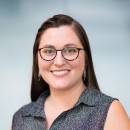 Lauren White, Joint PhD Student NIMH Funded to Support Youth Suicide Prevention
Lauren White, Joint PhD Student NIMH Funded to Support Youth Suicide PreventionThe National Institute of Mental Health is funding Lauren White, Joint PhD student in Social Psychology and Social Work, to study a new suicide prevention model, Promoting Community Conversations About Research to End Suicide. The program is a health intervention designed, supported and implemented by remote communities in Northwest Alaska to decrease youth suicide. Professor Lisa Wexler is the principal investigator.
- April 27, 2020
 We Can’t Forget Michigan's Abused and Neglected Children During COVID-19
We Can’t Forget Michigan's Abused and Neglected Children During COVID-19Associate Professor Shawna Lee and members of the Michigan Child Welfare Inter-University Consortium wrote an op-ed in the Detroit Free Press,” We can’t forget Michigan's abused and neglected children during COVID-19.”
- April 27, 2020
- Learn more »
- Social Work Practice, Policy and Research MasterTrack Online Certificate - Starting September 2020
Master’s-level learners have a new innovative and flexible online MasterTrack Certificate program, offered on Coursera. The Social Work MasterTrack program is focused on research, policy and practice. Six courses address advocacy for diversity, social justice and change and emphasize practice with individuals, families, small groups and community organizations.
Students can earn a certificate or, upon successful completion of all courses, may apply for admission to the 45 credit Master of Social Work degree program, which has been offered on campus and will also be offered via a new online format, beginning spring 2021.
“Completing the MasterTrack program will allow students who want to pursue an MSW degree to waive an entire semester, which equates to significant cost savings,” said Barb Hiltz, lead faculty member for the MasterTrack and director of the MSW program.
Michigan Social Work faculty and staff have partnered with the University of Michigan Academic Innovation and Coursera to develop Social Work: Practice, Policy and Research MasterTrack Certificate.
- April 21, 2020
- Learn more »
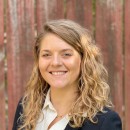 Sara Stein Talks to WWJ 950 About MI Frontline Support
Sara Stein Talks to WWJ 950 About MI Frontline SupportSara Stein, Joint PhD student social work and psychology discussed MI Frontline Support a program offering mental health care to essential workers during the Coronavirus pandemic. The program makes it easier for frontline workers to connect with licensed clinicians.
- April 20, 2020
- Learn more »
- COVID-19 Stigma Discussion Group
Michigan Social Work is addressing issues of stigma and discrimination against Asians and other minority groups in a series of online weekly forums. Moderated by Assistant Professor Addie Weaver and Professors Rogério Pinto and Larry Gant, the discussion group aims to strengthen solidarity and fight racism and discrimination.
“The COVID-19 pandemic quickly exposed social (e.g., unemployment, food insecurity), medical (e.g., lack of testing, medicine), and structural (e.g., lack of hospital beds, protective gear) issues which have historically undermined the most vulnerable in our society. Our Thursday discussions have addressed issues of stigma, oppression, positionality and myriad others, which outside of the COVID-19 context might be overlooked. The weekly discussion has generated many ideas for research and updated curricula needed to understand and address this new reality,” said Pinto.
Sponsors include the School's Faculty Allies for Diversity Committee in collaboration with the Office of Diversity, Inclusion and Equity. We hope students, faculty and staff will join us via BlueJeans at 3 PM on Thursdays for these frank and essential community discussions.
- April 20, 2020
- Learn more »
 Terri Friedline Named a U-M Mentor Fellow for Public Engagement
Terri Friedline Named a U-M Mentor Fellow for Public EngagementAssociate Professor Terri Friedline has been selected for the U-M 2020 cohort of the Public Engagement Fellowship. Mentor fellows are faculty with more extensive experience in public engagement and will work closely with Fellows to provide guidance, connections and mentorship based on their own expertise and networks. Although planning for the Public Engagement Fellowship started before COVID-19, the current situation highlights how important programs like these are in preparing scholars for engagement - both in moments of crisis and over the long-term.
- April 20, 2020
- Learn more »

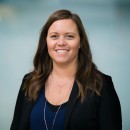 Matthew Smith and SIMmersion LLC Awarded a $3.1 Million Grant from the National Institute of Mental Health
Matthew Smith and SIMmersion LLC Awarded a $3.1 Million Grant from the National Institute of Mental HealthAssociate Professor Matthew Smith and SIMmersion LLC were awarded a $3.1 million grant from the National Institute of Mental Health. Smith is the scientific lead developing a virtual simulation, which will help autistic teens and young adults learn effective ways to talk and interact with customers, coworkers and supervisors in work settings. Joint PhD student Kari Sherwood is assisting with this project.
- April 17, 2020

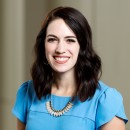 Shawna Lee Discusses Parenting During COVID-19 with Michigan Minds
Shawna Lee Discusses Parenting During COVID-19 with Michigan MindsAssociate Professor Shawna Lee discussed the stress of parenting during the coronavirus pandemic on the latest episode of the Michigan Minds podcast. On March 24, which was shortly after much of the country began social distancing, Lee and PhD student Kaitlin Ward conducted an online survey that asked a series of questions on parenting behaviors, economic situation and well-being.
- April 17, 2020
 John Tropman’s Book “Supervision, Management, and Leadership: An Introduction to Building Community Benefit Organizations” is Published
John Tropman’s Book “Supervision, Management, and Leadership: An Introduction to Building Community Benefit Organizations” is PublishedHenry J. Meyer Collegiate Professor Emeritus of Social Work John Tropman is the author of a new book, “Supervision, Management, and Leadership: An Introduction to Building Community Benefit Organizations.” Tropman’s handbook serves as a guide for managers and leaders in the human services field. “In response to the increasing needs of managers and leaders, John Tropman provides a comprehensive framework and sensible strategies for improving the craft of management. His text provides a wealth of insights for management practitioners ranging from students to supervisors and agency executives." -- Bowen McBeath, Professor of Social Work and Public Administration Portland State University and Beijing Normal University
- April 17, 2020
- Learn more »
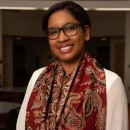 Jaclynn Hawkins Will Assess Men’s Health Event In Relation to the COVID-19 Pandemic
Jaclynn Hawkins Will Assess Men’s Health Event In Relation to the COVID-19 PandemicEach year the Michigan Men’s Health Foundation holds a Men’s Health Event in Metro Detroit, which offers low-income men free health and mental health screenings. Research consistently demonstrates that these groups of men are more likely to experience undiagnosed or sub-optimally managed chronic conditions such as diabetes, heart disease and cancer.
Assistant Professor Jaclynn Hawkins has received a grant to both evaluate the impact of this event on health behaviors, and to assess health behaviors and outcomes in relation to the COVID-19 pandemic. Funded by the Michigan Institute for Clinical Health Research, this study will help health care professionals better meet the needs of this at-risk group, while taking into account the specific health needs during the pandemic.
“Low-income men in metro Detroit are one of the most at-risk and vulnerable groups during the pandemic, this research will ensure their voices are heard and their needs are met during this critical time,” Hawkins said.
- April 15, 2020
- Learn more »